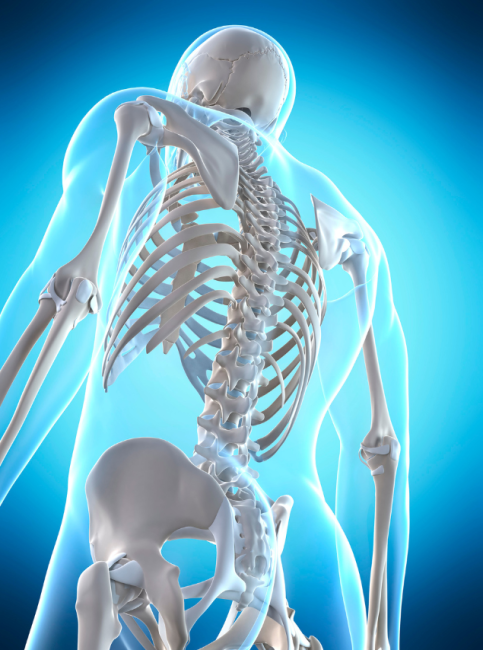Posted On: August 21, 2025
The spine, or backbone, is central to the entire human body, connecting your musculoskeletal system, which includes your body’s bones and muscles. It protects your nervous system, facilitates movement, and enables communication between the brain and the rest of the body. It’s essential in supporting the body’s structure and vital functions. Despite being a critical structure in the body, the spine is often underappreciated.
All of our sensations, motor skills, and coordination travel through nerves in the spine, and when those connections are disrupted by injuries or wear and tear, it can cascade into a whole series of health problems as we age. Poor spine health limits your ability to exercise, which is necessary to help prevent osteoporosis or weakening of the bones. Weak bones can lead to fractures in the spine, hips, or other areas. According to the National Institute of Health, spine-related disorders are among the most frequently encountered health problems, with low-back pain affecting an estimated 80 percent of Americans at some point in their lives.
There are many things that we can do to promote better spine health and prevent injuries, bone loss, and loss of mobility:
- Stretch and strengthen the back muscles through daily exercise.
- Maintain a healthy weight to prevent undue physical stress on the spine.
- Avoid nicotine, which tightens blood vessels, limiting oxygen and nutrition to the spine.
- Reduce or eliminate inflammatory foods and opt for healthy choices.
- Practice correct techniques when lifting — back straight, knees bent, & engage the legs to lift.
- Stay in motion and avoid remaining in one position for an extended time.
- Stand whenever possible, and practice proper posture to maintain neutral spine alignment and eliminate spinal stress.
- Try yoga, which can improve flexibility, strength, balance, and posture.
- Experiment with water therapy to build strength and alleviate discomfort from back issues.
- Consult with your primary care provider when experiencing persistent neck or back pain. The provider can check for numbness, tingling, sciatica, or any other indicators of nerve involvement and can refer you to an orthopaedic specialist for further examination.
In addition, maintain healthy bones and avoid premature bone loss. Follow a healthy diet with plenty of calcium and protein, boost your vitamin D intake, and stay active through weight-bearing and muscle strengthening exercises. Show some backbone in your daily routine, stand up for a healthy spine, and experience the benefits that have lifetime impact.
